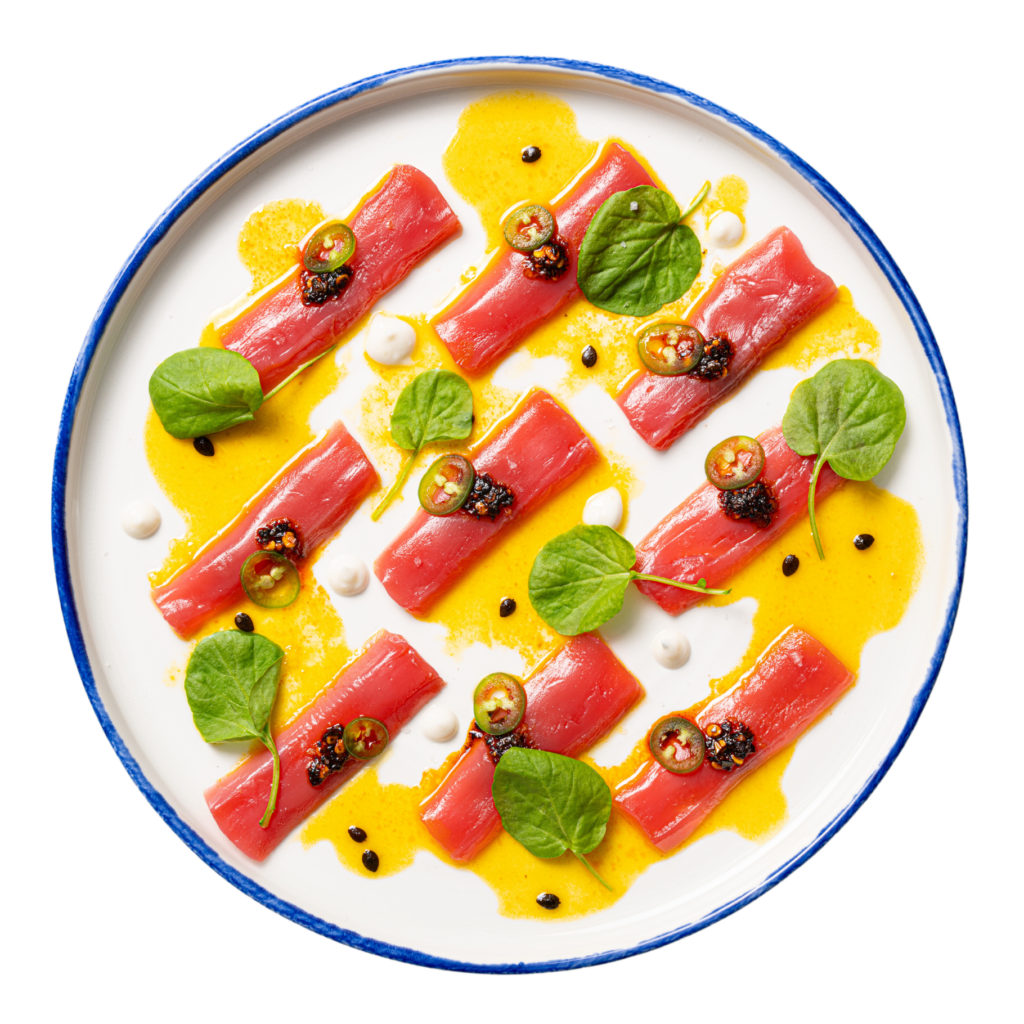
Devon Truelove recently joined our team as a product development intern, and will spend the next six months crafting the world’s most realistic seafood alternatives: shrimp, scallops, calamari and filets of animal-free tuna and whitefish, all with a realistic taste and texture, from the magic of mycoprotein.
Devon is currently a fourth-year student in Culinary Science at the prestigious Johnson & Wales University, and we wanted to learn more about what drove him to come to Chicago and work with Aqua’s fermentation technology.
Thanks for doing this, Devon! Why are you passionate about a career in food science? Where did your love of food come from?
Since I was in elementary school I’ve always loved working with food, and knew I wanted to base my life around it. I can’t describe how much it meant to me to see or know someone was enjoying something I made. As I got older and started working in the food industry, I quickly realized that while I loved working with food, I did not want to be trapped behind the line for the rest of my life. Pair that with a passion for science, and culinary science just seemed like the perfect fit. I get to constantly work on something new, and reach an infinitely wider audience with something I’ve made, as opposed to if I were in a restaurant.
What kind of technologies and products have you worked with at Johnson & Wales?
My junior year I was introduced to some of the basic measuring tools used, Bostwick consistometers, water activity meter, refractometers, calculations such as specific gravity, and moisture gain. We had a semester project where my group chose to experiment with hydrocolloids to find a cost-effective vegan gelatin alternative.
In my senior year we were tasked with attempting to reverse-engineer a common store product. The product our group chose was Tostitos medium salsa con queso.
What excites you about alt-seafood?
There’s the more general items that excite me such as the sustainability aspects and the ability to take some of the strain off our oceans, but a big thing for me is how unique it is. Especially Aqua Cultured specifically—it’s a whole muscle seafood replacement that closely matches in nutrition, whereas a lot of current seafood alternatives are something like a seafood flavored and shaped tofu, or mixture of starches, flours, and gums. Being able to work with something at the forefront of the food industry is just an experience you can’t get from a lot of places.
What’s it like working with our lead scientist, Bob?
Bob is amazing. He has a clear understanding and vision of what the product is going to be and its potential. He’s very eager and happy to answer any questions I have, be it about tests we plan to run, why we use a specific item, or just about microbiology in general since I don’t know too much about that yet. Bob and I may not be in the exact same fields, but I still know and hope I can learn a lot from him.
Let’s say you’re hosting a dinner party featuring Aqua’s products. What would you make?
Obviously I’d start with a fried calamari appetizer, probably tossed in a light lemon and herb coating and tomato sauce for dipping.
As an entrée I’d sauté some “shrimp” with some onion and garlic and a little salt, pepper, tarragon, and dill, with a dash of Old Bay seasoning and hot paprika, deglazing the pan with some white wine and lemon juice. I’d reduce it about a third of the way, and use that as the sauce over top of linguine, with some fresh parsley as a garnish, and nutritional yeast to replace parmesan.
Sounds delicious! What time, and what do I wear??


